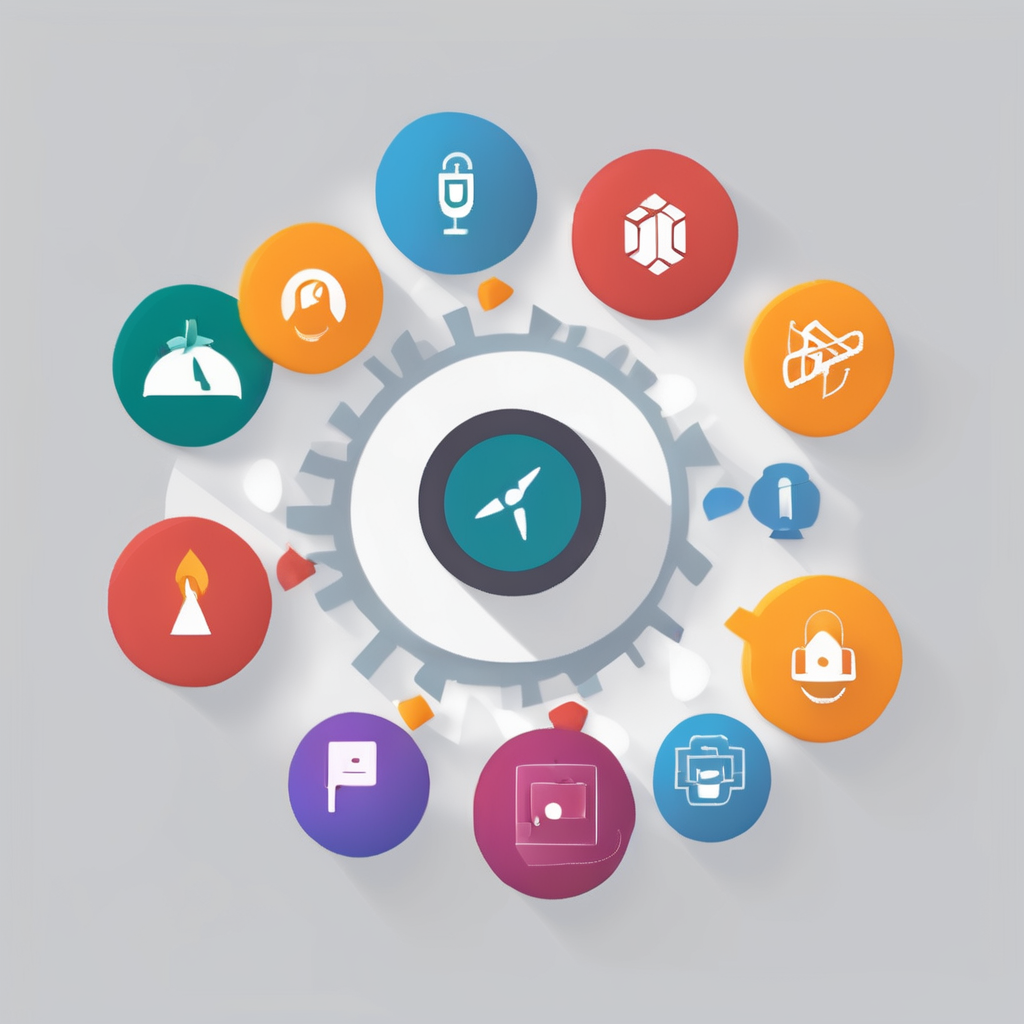Overview of AI Integration in Curriculum Development
Artificial Intelligence (AI) is transforming the education landscape by introducing innovative ways to tailor learning experiences. At its core, AI in education refers to the use of algorithms and technologies that facilitate personalized learning paths, automate administrative tasks, and enable data-driven decision-making. The toolset includes everything from intelligent tutoring systems to automated grading.
Incorporating AI into the curriculum is crucial in today’s rapidly evolving world. It allows educators to offer innovative education technology that enhances learning outcomes and prepares students for a tech-driven future. AI’s ability to adapt and personalise lessons means that learners receive instructions that suit their individual pace and style, which boosts engagement and comprehension.
Also read : Unlocking enhanced augmented reality shopping: innovative tactics for uk retailers
In the UK, AI integration in schools is gaining momentum, with many institutions employing AI technologies to enrich the curriculum. Currently, this translates to UK education systems making significant strides in embedding AI into everyday learning and teaching practices. However, there remain challenges such as unequal access to technology and necessary teacher training, which need to be addressed to fully harness AI’s potential in education. Schools must strategically incorporate AI tools to ensure students benefit from these advancements.
Effective Strategies for Integrating AI in Curriculum
Integrating AI strategies for education requires a thoughtful approach to curriculum innovation. Identifying appropriate AI tools is the first step. Educators can start by assessing the specific needs of their classrooms. For instance, language learning platforms that utilise AI for personalised feedback can be invaluable.
Also read : Mastering neuromarketing: essential strategies for uk agencies to elevate their marketing success
Blending traditional teaching methods with AI-driven techniques involves adaptability. Teachers might introduce AI tools in a blended learning environment, where online AI platforms complement face-to-face instruction. This allows students to benefit from the interactive capabilities of AI while maintaining the personal touch of human educators.
Developing AI-centered learning modules entails structuring content around AI applications. Modules may include projects where students interact directly with AI software, fostering an experiential understanding of the technology. For example, using AI to analyse historical data can provide students with innovative ways to engage with history lessons.
In conclusion, curriculum innovation through AI strategies involves a balanced blend of tools that enhance teaching methods and enrich learning experiences. By effectively integrating these approaches, educators can ensure that students are prepared for an AI-driven future.
Case Studies of AI Integration in UK Schools
Examining AI integration in UK schools offers insightful success stories. Let’s explore the transformative effects on education.
School A: Personalized Learning
AI presents a transformative approach, allowing educators to create tailored curricula. In School A, AI tools analyse student data to customise learning plans. This method identifies strengths and weaknesses, enabling adaptive learning. The technology fosters inclusivity by supporting diverse learning needs. Teachers report increased student confidence and improved performance, marking a success story in UK education.
School B: Administrative Efficiency
AI streamlines administrative tasks, redefining school operations. At School B, AI manages schedules and data processing, reducing workload and errors. The automation of routine tasks enhances administrative efficiency, allowing staff to focus on student interactions. This has led to better resource allocation and time management, illustrating AI’s transformative potential in education.
School C: Enhanced Engagement
AI enhances student engagement by offering interactive content. School C leverages AI-driven platforms to deliver engaging lessons, fostering participation and curiosity. The tech adapts to different learning paces, ensuring all students remain involved. This innovative method strengthens the educational experience, creating another success story in UK schools.
Each case study highlights significant lessons, reinforcing AI’s role in advancing educational practices.
Benefits of AI in Curriculum Development
The incorporation of AI in education is transforming how curriculums are designed and delivered. One significant advantage is the customization of learning experiences. AI systems can analyse individual student data to create tailored educational paths, addressing each learner’s strengths and weaknesses. This ensures a more enhanced learning experience, as students can progress at their own pace while mastering subjects suited to their abilities.
Moreover, data-driven decision making becomes increasingly viable for educators. By using AI to collect and interpret vast amounts of educational data, teachers can gain insights into student performance and learning trends. This empowers educators to adjust teaching strategies, ultimately leading to improved educational outcomes.
AI also promotes advancements in student engagement and performance. Intelligent tutoring systems provide interactive, real-time feedback, keeping students motivated and focused. Gamification elements, powered by AI, offer a playful yet educational experience, further boosting student interest in learning materials.
In summary, AI facilitates a more adaptable, efficient, and engaging educational environment. By seamlessly integrating AI, educational institutions can enhance learning and achieve more favourable educational outcomes.
Challenges of AI Integration in Education
The implementation of AI technology in UK schools faces numerous challenges. Resistance from educators and stakeholders is perhaps the most significant barrier. Many educators may feel unprepared or unwilling to adapt AI tools, fearing they might replace traditional teaching roles. There’s also the perception that integrating AI could lead to a loss of personal interaction between teachers and students.
Technical limitations and resource availability present another obstacle. Schools may not have the necessary infrastructure or funding to support AI technology. The disparity in resources between different school districts can lead to unequal access to these technological advancements, hampering widespread implementation.
Ethical considerations and data privacy issues also pose significant challenges. Concerns around student data privacy, especially in the usage of AI, can lead to heightened scrutiny. Schools must ensure that AI applications comply with privacy laws and ethics, safeguarding students’ personal information. This requires ongoing evaluation and stringent data protection measures.
Addressing these AI challenges in schools requires collaboration among stakeholders, consistent investment in infrastructure, and comprehensive training programs to equip educators with the skills needed. Only then can the potential barriers to integration be effectively navigated, optimising AI’s role in the educational landscape.
Solutions for Overcoming Challenges
Leveraging AI solutions in education can lead to transformational learning experiences. However, to overcome challenges effectively, it is essential to adopt certain best practices.
Creating a culture that embraces technology innovation begins with an attitude of openness and curiosity among educators. In this ever-evolving landscape, it is crucial to provide comprehensive training and resources tailored to teacher needs. This equips educators to harness the full potential of AI in education, enabling them to implement these technologies with confidence.
Best practices for incorporating AI into educational settings include consistent professional development opportunities and creating resources that are easily accessible. Examples could be workshops, online courses, and collaborative platforms where educators share insights and experiences.
Establishing a robust support network is vital for the successful implementation of AI solutions. A well-constructed system includes technical support and pedagogical assistance. This network offers guidance on using new tools and integrating them into existing curriculums effectively.
Such a holistic approach ensures that educators are not only equipped with the knowledge to use AI solutions but are also supported throughout the process. By prioritising these elements, educators can foster a productive and innovative learning environment that benefits students and teachers alike.
Tools and Resources for Educators
Educators today have access to a variety of AI education tools that can enhance teaching and help with assessment tasks. These tools offer practical solutions, such as automated grading and personalized feedback, aiming to make education more efficient. Understanding the benefits and functionalities of these tools can support their integration into classrooms.
Training resources, including workshops and online courses, equip educators with the necessary skills to effectively use technology integration in lessons. These programs often focus on teaching methodology and the application of AI in educational settings, ensuring that educators are prepared to meet the evolving needs of students.
Online resources provide a platform for continuous learning and support. Websites, webinars, and forums dedicated to AI in education are invaluable for educators seeking advice or wanting to expand their knowledge.
Incorporating AI into education does not only involve using the right tools but understanding how to integrate them into existing curricula effectively. By leveraging these resources, educators can be more adept at fostering an innovative learning environment. The ultimate goal is for educators to feel confident and supported in adopting new technologies, enabling them to provide enriched learning experiences for their students.
Future of AI in Curriculum Development
The future of education technology is transforming rapidly, fueled by groundbreaking trends in AI. Understanding these emerging technologies can help educators seamlessly integrate new tools into their curriculums. In particular, AI is enabling more personalised learning experiences by adapting educational content to each student’s needs and learning pace.
A long-term vision for AI in UK schools includes more robust integration of AI-driven analytics to monitor student progress and adapt teaching strategies. Such systems can provide real-time feedback to both students and teachers, promoting a more interactive and engaging learning environment. As AI continues to develop, it will play a significant role in curriculum evolution, allowing teachers to focus more on mentorship and skill development rather than routine assessment.
Globally, these advancements could lead to a more unified approach to education, as AI applications offer solutions that transcend geographical and cultural barriers. The potential impact on global educational practices includes facilitating access to high-quality resources and supporting underrepresented communities in achieving educational equity. These trends in AI promise not only to improve educational outcomes but also to prepare students for a world where AI plays an increasingly critical role.











